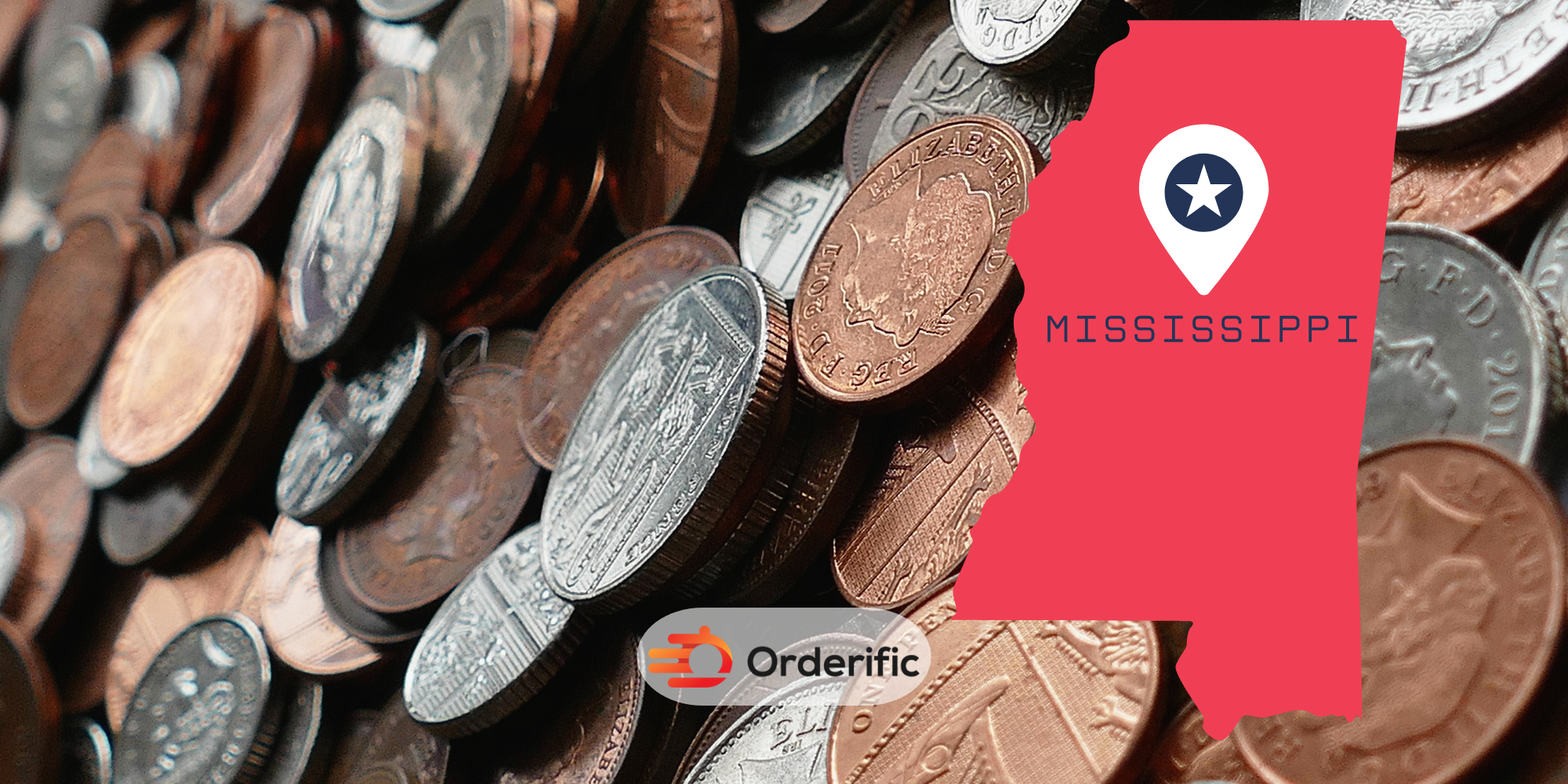In the Magnolia State, a heated discussion is taking place around the minimum wage – the lowest hourly wage that an employer can legally pay employees. Currently, Mississippi has no state minimum wage, defaulting to the federal minimum wage of $7.25 per hour. However, a growing voice of activists and policymakers is advocating for an increase, arguing that this rate hasn’t kept up with the cost of living.
On the other side of the debate, many business leaders and economists caution against a quick and significant increase. They worry that higher wages could lead to job losses or increased prices as businesses struggle to absorb the new costs. It’s a complex issue with no clear-cut answers, and the impact of any changes will directly touch the lives of many Mississippians.
Understanding the Minimum Wage in Mississippi
The minimum wage debate in Mississippi is part of a larger national conversation about wages, labor rights, and economic justice. The federal government sets the baseline for what employers must pay their workers, but individual states can choose to set their own higher minimum wage rate.
What is the Current Minimum Wage in Mississippi?
The current minimum wage in Mississippi is $7.25 per hour – the same as the federal rate. There are currently no state-wide laws that mandate a higher minimum wage for any workers or employers, and local governments do not have the authority to set a higher statewide rate. However, some cities such as Jackson have passed ordinances requiring certain businesses to pay more than the federal rate.
How Does Mississippi’s Minimum Wage Compare to Other States?
Mississippi’s minimum wage is the same as the federal rate of $7.25 per hour, which is below the average US state minimum wage rate (currently $8.86). It is also lower than many of its neighboring states – Arkansas ($11.00), Florida ($11.00), and Missouri ($12.00).
Who is Affected by the Minimum Wage in Mississippi?
The minimum wage affects all workers in Mississippi who are paid hourly wages. This includes both full-time and part-time employees, as well as those working in the service industry. In addition, some local governments have passed ordinances that set a higher minimum wage for certain categories of workers, such as tipped employees or those employed by businesses with more than 15 employees.
Why is the Minimum Wage a Controversial Issue in Mississippi?
The minimum wage debate in Mississippi is part of a larger national discussion about wages, labor rights, and economic justice. Those who support an increase believe that the $7.25 rate has not kept up with the cost of living and argue that workers should be paid a livable wage for their work.
Business owners and economists, however, worry that raising the minimum wage could lead to job losses or increased prices as businesses struggle to absorb the new costs. It’s a complex issue with no clear-cut answers, and the impact of any changes will directly touch the lives of many Mississippians.

Arguments For Raising the Minimum Wage in Mississippi
The primary argument for raising the minimum wage in Mississippi is that it would benefit workers who are struggling to make ends meet. A higher wage would mean more money in their pockets, allowing them to afford necessities like food, housing, and transportation. In addition, a raise could help stimulate the local economy by putting more money into circulation as people spend their increased wages on goods and services.
Reducing Poverty and Income Inequality
One of the main arguments for raising the minimum wage in Mississippi is that it would help reduce poverty and income inequality. Low-wage workers are disproportionately affected by poverty, and increasing their wages could help them make ends meet and improve their quality of life. In addition, increasing the minimum wage could have a ripple effect, helping to raise wages across the board as businesses adjust to the new rate.
Stimulating the Local Economy
The other major argument for raising the minimum wage is that it could stimulate the local economy. Low-wage workers are more likely to spend any additional money in their paycheck on goods and services, rather than saving or investing it. This spending could help to increase economic growth and create jobs, as businesses expand to meet the increased demand.
Supporting Working Families
Finally, raising the minimum wage could help to support working families. Low-wage workers often have to work multiple jobs to make ends meet, and higher wages would enable them to spend more time with their families and less time at work. In addition, it could help reduce the gender pay gap by enabling women (who are disproportionately affected by low wages) to earn a livable wage.
Encouraging Fairness and Equity in the Workplace
The debate over the minimum wage is also a discussion about fairness and equity in the workplace. A higher rate would help ensure that all workers are paid fairly for their time and labor, regardless of their position or employer. In addition, it could increase job satisfaction and morale by showing employees that they are valued and respected.
Arguments Against Raising the Minimum Wage in Mississippi
Opponents of raising the minimum wage in Mississippi argue that it could lead to job losses and increased prices as businesses struggle to absorb the new costs. They also contend that higher wages could put small businesses at a competitive disadvantage, leading them to lay off workers or move out of state.
Potential Job Losses and Business Closures
The primary argument against raising the minimum wage is that it could lead to job losses and business closures. Small businesses in particular may struggle to absorb the new costs, leading them to cut workers or shut down completely. In addition, some states have found that increasing the minimum wage has led businesses – particularly those affected by seasonal demand – to move out of state in search of lower wages.
Increased Costs for Small Businesses
Another argument against raising the minimum wage is that it could lead to increased costs for small businesses. Many business owners worry that they won’t be able to absorb the new costs, and will be forced to pass them on to consumers in the form of higher prices. This could make it difficult for businesses to remain competitive, particularly those with low-profit margins or high labor costs.
Potential Inflation and Higher Prices for Consumers
Opponents of raising the minimum wage argue that it could lead to inflation and higher prices for consumers. This is because businesses may attempt to pass their increased costs on to customers, resulting in a general rise in prices across the board. In addition, it could cause workers with fixed incomes – such as retirees or those receiving government assistance – to experience an erosion of their purchasing power.
The Importance of Market Forces in Setting Wages
Finally, opponents of raising the minimum wage argue that market forces should be allowed to determine wages. They contend that the government should not interfere in wage-setting, and believe that a higher rate would lead to labor shortages as businesses struggle to attract qualified workers. In addition, they worry that it could reduce job flexibility. And incentivize employers to automate certain jobs or replace human labor with machines.
Possible Impacts of Raising the Minimum Wage in Mississippi
There is no clear answer to the debate over raising the minimum wage in Mississippi. It’s a complex issue with no easy solutions, and any changes will likely have both positive and negative impacts.
The Effect on Low-Wage Workers and Their Families
Raising the minimum wage in Mississippi would likely result in an immediate increase in wages for low-wage workers. This could help them make ends meet, reduce poverty, and improve their quality of life. It could also have a ripple effect by pushing businesses to raise wages across the board as they adjust to the new rate.
The Effect on Small Businesses and the Local Economy
The impact on small businesses and the local economy is less clear. Higher wages could lead to job losses or increased prices as businesses struggle to absorb the new costs. However, it could also have a positive effect by increasing consumer spending and stimulating economic growth.
The Effect on State and Local Government Budgets
Raising the minimum wage could also have an impact on state and local government budgets. Higher wages could lead to increased tax revenues, as workers pay more taxes on their larger paychecks. On the other hand, it could also result in higher costs for social services such as Medicaid or food stamps. So, workers become eligible for benefits they wouldn’t otherwise qualify for.
The Effect on the Overall Job Market in Mississippi
Finally, raising the minimum wage could have an impact on the overall job market in Mississippi. There is some evidence that higher wages lead to increased productivity and lower turnover rates, as workers are more likely to stay with their employers. However, it could also lead to job losses. More than that, a decrease in entry-level jobs as businesses struggle to adjust to the new rate.

Conclusion
The debate over raising the minimum wage in Mississippi is a complex one, with no clear-cut answers. Supporters argue that higher wages would benefit workers and stimulate the local economy, while opponents worry about job losses and increased prices. Ultimately, any changes to the minimum wage will have far-reaching impacts on businesses, workers, and communities – for better or worse. It’s important to consider all sides of the debate before making any decisions. And to ensure that any changes are implemented in a way that is both fair and sustainable. Only then can Mississippi move forward toward a brighter future for all its citizens.
Only time will tell how Mississippi will handle the issue of minimum wage and what impact it will have on the state’s economy, workers, and businesses. Despite whatever changes are made, Mississippi should strive to maintain an economy that works for everyone – one that is fair, equitable, and provides a living wage to all its citizens.
Find more informative content with Orderific here. For the many ways Orderific can improve your business, start trying it out here. It’s Orderific time now!
FAQs
What is the federal minimum wage, and how does it compare to Mississippi’s minimum wage?
The federal minimum wage is currently $7.25 per hour, which is the same as Mississippi’s minimum wage.
How often does the minimum wage in Mississippi change?
It is the same with the federal minimum wage since 2009.
What types of jobs are exempt from the minimum wage requirement in Mississippi?
Executive, administrators and professionals, outside sales employees, and employees in certain computer-related occupations are exempt from the minimum wage requirement.
How does the minimum wage affect small businesses in Mississippi?
They may be affected by the minimum wage if they choose to implement a higher rate than the federal requirement.
What is the poverty rate in Mississippi, and how does the minimum wage relate to it?
In Mississippi, the poverty rate is $6.53, and with one child $8.80, while the minimum wage is $7.25 per hour.













